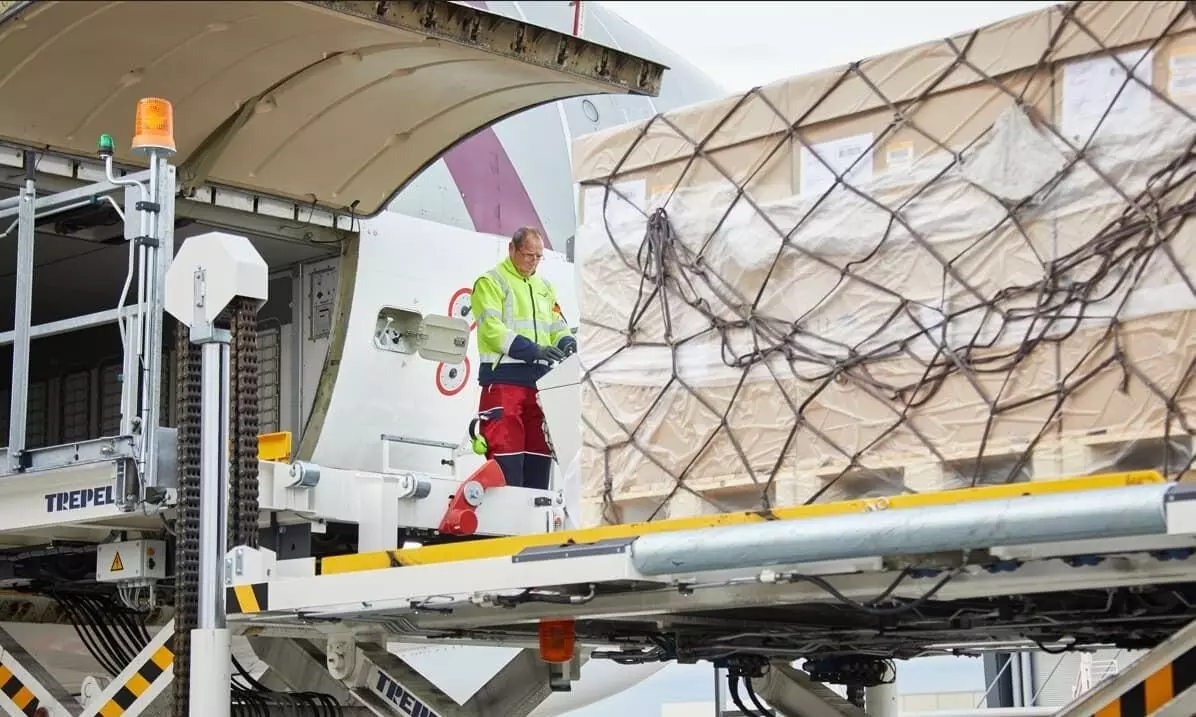
Weak e-commerce demand leading to BSA, charter cancellations: Dimerco
Recent surge in spot rates in early March is driven by shippers moving goods before the quarter-end.

The intra-Asia air freight market remains strong due to the transportation of raw materials and parts among China, Taiwan, Singapore, Thailand, Vietnam and Malaysia.
"With production shifting away from China and e-commerce demand remaining soft, carriers may allocate more capacity to Southeast Asia instead," according to the latest update from Dimerco.
"TPEB traffic saw a slight surge in the second week of March but began to stabilise from the third week. This trend is expected to continue into April.
"E-commerce demand has remained weak since February, leading to ongoing block space agreement (BSA) and charter cancellations, particularly for shipments to the U.S. This has resulted in an oversupply of capacity relative to demand."
The recent surge in spot rates in early March is driven by shippers moving goods before the quarter-end, the update added. "Many shippers had been holding shipments since January, waiting for tariff announcements by the Trump administration. With the quarter-end approaching, goods were released, and the market has now gone quiet."
Kathy Liu, VP, Global Sales and Marketing, Dimerco Express Group says: "Based on current trends, we expect the market slowdown to persist until June, unless there’s a surge in e-commerce demand or new tariffs are introduced in the coming weeks. The increase in cargo volume was brief, lasting only two weeks and primarily from key gateways in China. Compared to the same period in 2024, the volume increase is not significant, with no notable capacity shortages in the market."
Country/region report
Taiwan: Taiwan's export growth is driven by AI and high-tech products, and increased e-commerce transshipment from China and Singapore to the U.S. and Europe. "Flights from TPE to ORD and LAX are fully booked until the end of March, with freight rates rising due to high demand. Demand remains stable for shipments to India, but routes to MAA and BOM remain tight; early booking is recommended for urgent shipments."
North China: Since the middle of March, the e-commerce goods market has gradually returned to normal, and it is expected to have a positive impact on the overall cargo volume in the following period, the update added.
East China: "The air freight market remains stable despite growing demand for air cargo. However, ongoing developments in the U.S. may continue to disrupt the market. Capacity demand for U.S.-bound shipments remains soft."
South China: Rates to the U.S. are experiencing sharp fluctuations. "Rates to CGK, MNL and SIN are rising slightly due to increased demand for e-commerce and electronic products, while other Southeast Asian destinations maintain stable pricing and space conditions."
Hong Kong: E-commerce shipments to the U.S. continue to use alternative customs forms, driving increased demand for shipping space, the update added. "While freight costs to the U.S. West Coast remain stable, rates to the East Coast are rising."
South Korea: Dimerco suggests that bookings to the U.S. should be made at least two weeks in advance due to high demand and tight space availability. "For ICN to SIN, bookings should be made at least one week in advance as demand remains high and space is limited. Fuel surcharges will decrease slightly from March 16 to April 15 based on market conditions."
Vietnam: Shipments from Vietnam to the U.S. and Europe face capacity allocation challenges due to constraints at transit hubs. A long national holiday at the end of April may affect capacity and rates.
Thailand: "Chakri Memorial Day (April 7) and Songkran holiday (April 13-15) are expected to increase air export demand before the holidays. Fruit export season starting in April is expected to constrain airline capacity and raise rates by $0.3/kg. April is a hot month in Thailand; shippers of temperature-sensitive goods should notify airlines in advance. Effective April 1, repacking in the TG warehouse cargo reception area is prohibited; violations may lead to entry card confiscation (one month or permanent)."
North America/Los Angeles: Carrier capacity will increase with the start of summer schedules in April, which should come with some instances of rate reduction, but it won't help destinations with much higher demand, the update added.
North America/Chicago: With the pre-summer peak season approaching for retail and e-commerce, freight demand has dropped due to tariffs. Rates are expected to stay high, while trucking rates remain stable but may increase.
North America/Toronto: "Several Asian airlines have increased/introduced freighter frequencies in 2025. The market is more competitive and even more so with the upcoming summer schedule. Canada Customs Release Before Payment programme registration deadline is April 19, and all importers must be prepared to avoid customs delays."
Mexico: Strong growth in Latin America, including Mexico, has increased the flow of goods. "Much of the region's air cargo is destined for the U.S., and changes in U.S. tariffs could indirectly impact Mexico-China trade.
"E-commerce expansion and maritime transport constraints may lead to higher air cargo demand on the Mexico-China route. It is recommended to book flights two-four days in advance."
Q22025 outlook
Trade tensions and tariff uncertainties are leading to delays in BSA negotiations as shippers shift to short-term contracts instead of long-term deals for Q22025. This has created uncertainty in the air cargo market, impacting both pricing and capacity strategies. Carriers are adjusting their focus, potentially shifting away from China and exploring Southeast Asia and Transatlantic routes, the update added.
Dimerco advice: "Shippers should evaluate the benefits of securing long-term contracts to mitigate risks from market fluctuations."

